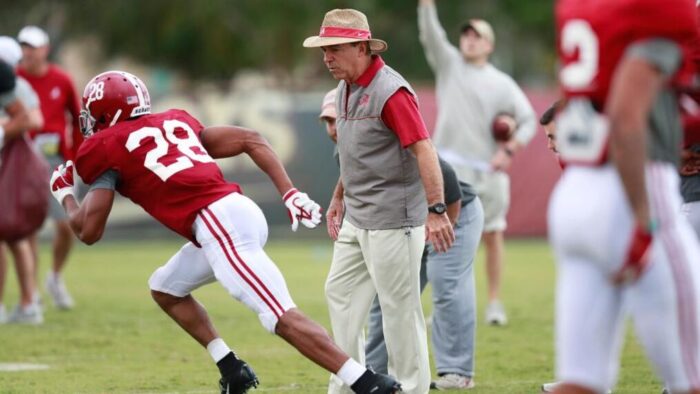I was recently asked by a new coach how I thought he should put together his individual period that he will get while coaching defensive backs at a middle school. It was a simple questions but a great question.
The truth of the matter is that many defensive back coaches just aren’t sure what to do with the precious and vital 15-25 minutes that they get with their group of defensive backs everyday. Show me a defensive back that is part of a well structured individual period every day at practice and I will show you a defensive back that performs well on game day.
I have written before in this blog on the importance of the individual period in practice for defensive backs. Next to offensive line, it is the position group that involves the most unnatural movements of anyone else on the field. Everyone else is running forward or throwing a ball or doing mostly things that normal human beings do in any other sport. Not defensive backs. Back pedaling, running sideways and guarding another many while looking at their lower body is not normal. Because of that, working on your craft on a daily basis in practice is crucial.
So here’s the deal. I am going to break down for you how an individual period should look for you as a coach.
The first 7-10 minutes should be filled with core drills that you perform each and every day. This should be 3-5 drills that mimick the moves that your defensive backs are going to be performing the most in your defense. So, if you are a team that relies heavily on press man coverage then the majority of those drill should involve that concept. If you are a quarters team or heavy zone team that plays off of the receivers then your drill should involve a lot of off the ball footwork, coming out of breaks, etc. Your individual period should allow your players to be an auto-pilot on game day with their movements. This only happens if they perform the same drills over and over. It’s like tying their shoes.
Next 5-10 minutes should involve one, at the most two, skills that you need your players to learn that day. Perhaps there is something new that they will be doing in this week’s game in a coverage you plan on running. Or maybe your players are struggling consistently with one particular concept or movement. You should spend this time trying to teach it or correct it. Don’t go using this time trying to cram in a bunch of drills or new concepts. The players won’t pick it up because you would not have spent enough time on it. There are few things on Earth that fly by faster than a position coach’s individual period. Pick a concept or technique and hammer it so that they get it.
Next 5-10 minutes, should involve you praying and thanking the Lord because you never get this time. If somehow you do then you can either spend that time going over scheme if you have a complicated one or continue to hammer home on the element you were going over in the previous 5-10 minutes. You should be striving for total understanding and mastery not introducing a million new concepts. Remember that a good amount of your players whether you are on the high school or college level are still learning. Many college defensive backs either just got moved to the position or did not play it in high school. Chances are the ones who did play it in high school likely weren’t too “coached up”.
I coached ball so I understand that sometimes your individual period will get hijacked by the need to go over a defensive installation. There’s nothing you can do about that. However, if you are spending your individual period each day going over scheme and not spending time teaching the players the techniques they need to excel in the scheme then you will be forever frustrated. That’s like showing a construction worker the floor plan then handing him an empty tool bag and telling him to get to work. That house won’t be built right no matter how well that floor plan was drawn up.
One final note, pick the most important skill for your players to master in your scheme and encourage your players to stay after practice for 5-10 minutes doing it. Over the course of a week that’s 30-60 extra minutes of skill development. Over the course of an entire season that could be 15-20 hours. Imagine getting an extra 20 hours to coach your group of players?
Chad Wilson is the owner of All Eyes DB Camp and author of "101 DB Tips". He played college football at the University of Miami and briefly in the NFL for the Seattle Seahawks. Over his 15 year high school football coaching career, he tutored over a dozen Division I defensive backs and as a trainer has worked with NFL All Pros, first round draft picks, college football All Americans and Top 10 ranked high school football prospects.








